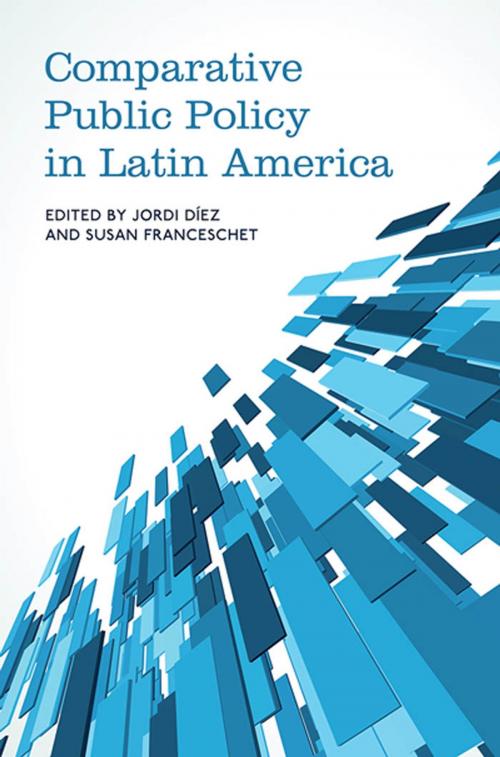Comparative Public Policy in Latin America
Nonfiction, Social & Cultural Studies, Political Science, Government, Public Policy, International| Author: | Jordi Diez, Susan Franceschet | ISBN: | 9781442663626 |
| Publisher: | University of Toronto Press, Scholarly Publishing Division | Publication: | November 23, 2012 |
| Imprint: | Language: | English |
| Author: | Jordi Diez, Susan Franceschet |
| ISBN: | 9781442663626 |
| Publisher: | University of Toronto Press, Scholarly Publishing Division |
| Publication: | November 23, 2012 |
| Imprint: | |
| Language: | English |
This pioneering collection offers a comprehensive investigation into how to study public policy in Latin America. While this region exhibits many similarities with the North American and European countries that have traditionally served as sources for generating public policy knowledge, Latin American countries are also different in many fundamental ways. As such, existing policy concepts and frameworks may not always be the most effective tools of analysis for this unique region.
To fill this gap, Comparative Public Policy in Latin America offers guidelines for refining current theories to suit Latin America’s contemporary institutional and socio-economic realities. The contributors accomplish this task by identifying the features of the region that shape public policy, including informal norms and practices, social inequality, and weak institutions. This book promises to become the definitive work on contemporary public policy in Latin America, essential for those who study the area as well as comparative public policy more broadly.
This pioneering collection offers a comprehensive investigation into how to study public policy in Latin America. While this region exhibits many similarities with the North American and European countries that have traditionally served as sources for generating public policy knowledge, Latin American countries are also different in many fundamental ways. As such, existing policy concepts and frameworks may not always be the most effective tools of analysis for this unique region.
To fill this gap, Comparative Public Policy in Latin America offers guidelines for refining current theories to suit Latin America’s contemporary institutional and socio-economic realities. The contributors accomplish this task by identifying the features of the region that shape public policy, including informal norms and practices, social inequality, and weak institutions. This book promises to become the definitive work on contemporary public policy in Latin America, essential for those who study the area as well as comparative public policy more broadly.















